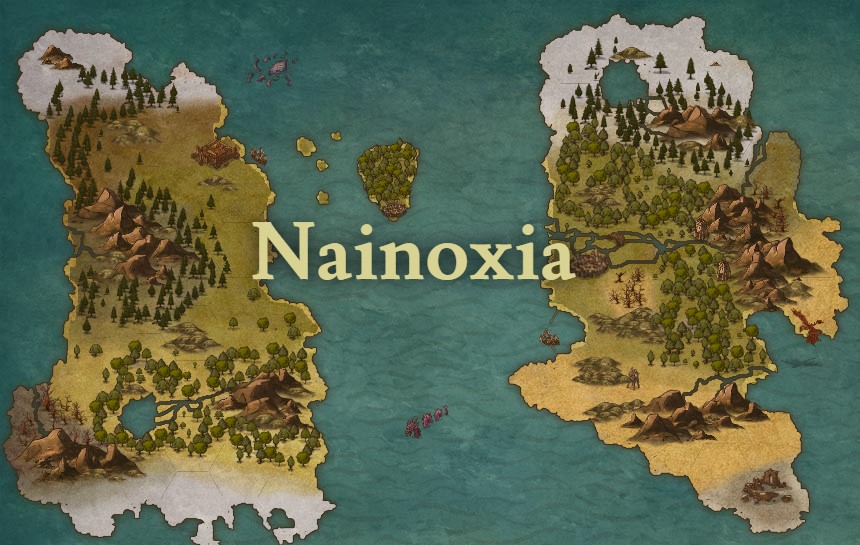Empire Nobility
In a world of corruption and evil, where the forces such as Inquisition have a divine mandate to purge all evil from the Empire, one might wander how the Nobility holds so much power. Surely, a group of people who are given immense power and responsibility as a birthright, without needing to prove their strength or smarts, would have no place in the brutal realities of Nainoxia.
However, through the Empires history, the Nobility has proved itself a necessary, cutthroat, and surprisingly efficient counterpart to the churches. They have shown themselves to be a necessary part of the Empire structure, and a key component in the governing and logistics of almost every settlement. Their purpose in the organization of the Empire is three-fold.
However, through the Empires history, the Nobility has proved itself a necessary, cutthroat, and surprisingly efficient counterpart to the churches. They have shown themselves to be a necessary part of the Empire structure, and a key component in the governing and logistics of almost every settlement. Their purpose in the organization of the Empire is three-fold.
Purpose:
Firstly, they are, willingly or not, expert wielders of political power, and through strategy, or most commonly greed, they manage to restrain the power of the churches and other organizations, therefore keeping a healthy balance that does not let anyone become too powerful within the political structure of the Empire. Secondly, the nobility watches over the general population, ensuring that they fulfill work quotas and don't step out of line. While this might seem like a position better suited for the Inquisition, the nobility has the power to do it without as many casualties or pyres, while still remaining harsh and effective. This is because of the structural pressures and lawmaking powers that the nobility is able to use against the peasants. Thirdly, and perhaps most importantly, they are the only organization within the Empire that can manage the army, as they have no inherent military power, such as paladins or clerics, and their ability to rile the common folk into violence is minimal at best. Therefore they have the lowest chance of acquiring enough power to overpower anyone seeking the challenge them, and they are also doubly checked by the army, as they have no divine mandate to hide behind if their actions are put under question.Powers:
- Legal powers, high ranking nobility can set laws that effect their controlled territory, change the percentage of crops taken by peasants working the lands and the taxes paid by traders bringing goods into cities. At the beginning of the Empire, each noble had full control of laws and taxes within their territory. However, for the better functioning of the Empire, and because some nobles were less than patriotic with their contributions to the logistics networks, the rates have been more or less standardized. The place where nobles do have control over, is the implementation of these rates and measures. For example, no higher up would know if, say a few caravans carrying expensive goods payed half the rate directly to the baron, rather than paying the normal tax to the Empire.
- Military powers, all nobles except Lords and Ladies have a city under their control, and to protect that city they have full authority to increase, decrease and use any Imperial Guard forces they deem necessary. Additionally, nobles of the rank Dukes and higher have authority to request the support of the Imperial Army, if the situation demands it. Of course the extent of the support offered by the High Lords will depend on who is asking and when.
- Political powers, not to be underestimated, the politics and alliances between nobles can help amplify their powers when asking for support from one-another. Offering future favors and access to resources can gain a noble much more power than he otherwise would have access to. Political marriages and long term plots are small prices to pay to access more support from the Army, or some more time for a High Lord to hear your case for a large investment of gold in your city.
Structure
At the head of the Nobility, leading each of the five provinces and controlling the Imperial Army are the High Lords. The provinces are in turn separated into Dukedoms led by Dukes, which are then separated into Counties led by Counts. Each individual town that is not a capital and as such home to a higher ranking noble, is officially led by a Baron who oversees it. Bellow the Barons are the Lords, usually owners of lands, forests and ones bearing rights to the utilization of those resources, as well as wielders of political power. The Lords and Ladies of the Empire live usually in the Capitals of Dukedoms and Counties and spend their time in court, talking about rumors and politics with other nobles.
Type
Government, Leadership
Leader Title
Parent Organization
Location
Related Ranks & Titles
Notable Members


